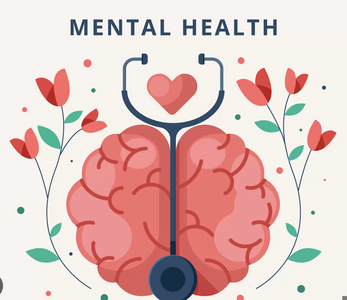In this blog post we will be reviewing some of the different types of organizations that exist in the mental health field. We hope this will help folks understand what is available to them and how to better navigate mental health services. There are many different kinds of mental health services available, the ones we will touch base on will be non-for-profit organizations, private practices, employee assistance programs (EAP’s) and crisis/help lines.
Private Practice: A private practice offers ongoing therapy with registered therapists which is paid for privately by the person accessing the service. In private practice you can access all sorts of therapy such as family therapy, couples therapy, and individual therapy. You can also receive different kinds of therapy such as DBT, CBT, ACT, mindfulness-based intervention etc... Because it is paid for privately there are often no waitlists and no limitation to the length or frequency of services. You will also be able to choose the therapist you feel is right for you and often these practices offer free consultations so you can talk to different clinicians to get a feel for what works best for you. While this is a fee-for-service organization, often people who have benefits through their employer or through a family member and will be able to claim private practice services to be reimbursed. Some places also offer a limited number of sliding scale spots for folks needing financial assistance, but this is limited in most cases.
Private practices typically will have shorter or no wait times and more availability. They can also have several types of therapists working at the clinic, such as Psychotherapists, Clinical Social Workers and Psychologists, and offer a wide range of therapeutic modalities. Make sure to look around and find the right fit for you.
A private practice is more suited to folks looking for ongoing therapy and looking to set and achieve long-term goals.
Non-for-Profits: A non-for-profit is an organization that typically receives outside funding; either private funding or government funding. This means that services are often free or offered at a very low rate.
Typically, a non-for-profit will offer services such as group therapy, family therapy, couples therapy and individual therapy. They may also offer things such as support groups, walk-in therapy, quick access therapy and peer support. Depending on the organization some of these services may be free, and others will be on a sliding scale usually determined during the intake process.
Typically, a non-for-profit will offer therapy sessions on a short-term model and only allow a certain number of sessions per client. They can also have longer wait times due to demand and less choice over the therapist you see.
This type of organization is best suited for folks who are in need of financial assistance and looking to get support around short term goals. They can be helpful if you are in need of quick help with offering walk-in and quick access services. They are also suited to folks looking for different types of support such as group support, peer support, etc.
EAP: Employee assistance programs are free services you can access through your employer. EAP companies are additional to your employee benefits program (often they are not the same company). An EAP offers free (free to you however your employer does pay for the program) short-term services such as legal, mental health, and wellness options. Access to services is often very quick and usually in-person, phone and online services are available. The number of sessions will be limited. Typically, you will be able to access around 3-6 sessions through your EAP company. For folks needing more/longer support, talk to your EAP provider, they may be able to refer you or help set up long-term support.
EAP’s can also offer 24/7 services for folks in distress or crisis who need more immediate support.
To find out more about your EAP, speak to your employer or contact your HR representative.
Crisis/Help lines: A crisis/help line is for folks needing immediate support, they can be called 24/7 and you will be able to speak to someone over the phone to get immediate support. This type of support is for folks who are in crisis or distress. If you have concerns for yourself or someone else's safety, you should call 911 or go to your nearest hospital.
Crisis/help lines:
- Distress Centre: 519-744-1813 or toll free 1-866-366-4566
- Here 24/7: 1-844-437-3247
- Mental Health Helpline: 1-866-531-2600
- Wellness Help Line: 1-855-242-3310
- Talk4healing: 1-855-554-4325
- Kids Help Phone: 1-800-668-6868 or www.kidshelpphone.ca
- First Nations and Inuit Hope for Wellness Help Line: 1-855-242-3310
- Crisis Services Canada: 1-833-456-4566
- Assaulted Women’s Helpline: 1-866-863-0511

